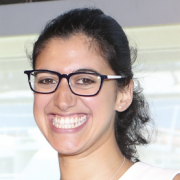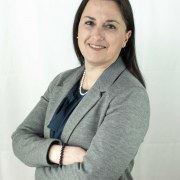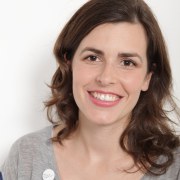Unprecedented developments in technology and science are creating new societal challenges, appearing in a climate of rising mistrust for science and technology. Lack of scientific understanding is a leading factor for this increasing mistrust. One solution is to increase the dialogue between scientists and the public. Our session highlights science communication as a vehicle for societal inclusion and active participation. Four non-profit organisations will present their innovative approaches, explaining how science outreach to immigrant communities, highly gifted students, patients and discussions on gender bias is helping move the dialogue forward. Our session hopes to stimulate interdisciplinary collaboration for science outreach.
Facilitator
Session speakers
President
Science Xplore
Viseu
Portugal
How would you stimulate and engage highly gifted youngsters? How to tap into their talents to give them a sense of fulfillment? Science Xplore will share their approach to science outreach to cultivate the next generation of thinkers and leaders.
Science communication and patient involvement manager
BRIO (Bordeaux Recherche Intégrée Oncologie)
BORDEAUX
France
Why and how to include patients in health research projects? While researchers bring their knowledge expertise, patients bring their expertise of life with the disease, to foster more creative and relevant outcomes. Patient positions as partners in the health and research sector empower them to take control of their health, and to contribute in training and research programs. The challenge of science communicators is to turn potential culture collisions into fruitful collaborations.
Health Psychologist and Co-Founder
Women's Brain Project
Switzerland
Several diseases of the brain disproportionately affect women. Yet, women are largely underrepresented in the drug development process, from basic research to clinical trials. Composed largely of scientists, the Women’s Brain Project (WBP) aims to stimulate a global discussion on gender and sex in brain and mental disease, by using scientific debate, outreach and advocacy. By informing women about their specific risk for brain and mental disease, we aim to empower them, increase their participation into clinical trials and improve their awareness about brain health.
Co-founder and director
Native Scientist
London
United Kingdom
Immigrant kids are twice as likely to underperform at school or drop out than the rest.
Native Scientist is a network of international STEM professionals committed to tackle this educational disadvantage and drive a societal change where:
- girls and boys both think that becoming a scientist is a real viable option;
- science communication is second nature for scientists;
- biculturalism or multiculturalism is accepted and celebrated (not marginalised or repressed).
Through our work we are inspiring the future generation of STEM professionals and training the current generation on science communication.
Since 2013, we have reached almost 2500 pupils and more than half (60%) of pupils meets a scientist for the first time of their lives during a Native Scientist workshop and almost 50% are inspired to become a scientist.





